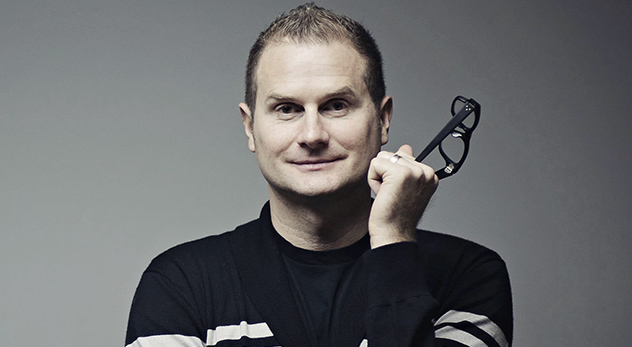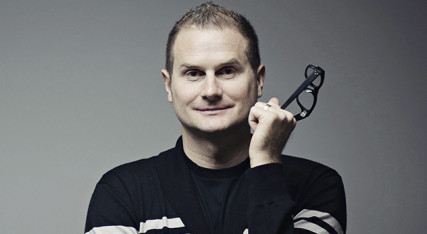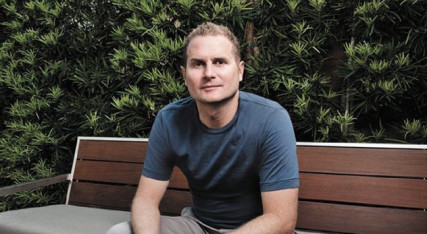The thesis of Rob Bell’s newest book, What We Talk About When We Talk About God, is simple:
God is with us.
God is for us.
God is ahead of us.
But there is more to Rob’s thinking than that. His views have nuance and texture that will doubtlessly influence many American Christians. That’s why I wanted to sit down with him and discuss his recent work. The following is part two of my interview:
JM: You say that a lot of people believe in a “tribal God.” What do you mean by that?
RB: I’m talking about that sense among lots of people that God is on our side and is for us, and is therefore against everybody else. There’s strong allegiance to the tribe at the expense of a God who loves everybody. I think a lot of people experienced this God in church. They visited a church, and it felt like the God of that church had a language and culture and customs and dress and insider terminology. And they felt that if there is a Creator of the universe—a singular, benevolent source of all this life that we all know to be life—that God must be bigger than this. I think a lot of people have had that experience.
JM: These dominant perceptions of God, you say in your book, aren’t just failing us. In many cases are causing us harm? How are they harmful?
RB: As a pastor, I’ve interacted with lots of people who knew something was true and knew it was good and knew it was helpful, but they’ve been given some sort of religious system of labels and categories. They were told that that this thing right in front of them is not “Christian.” So therefore, they are to keep it at arms length. Whether it’s science, literature, art, or we could go down the list. My experience has been that lots of people were handed a framework that simply doesn’t work.
I’ve met people, for example, who were told counseling is bad because they have the Bible. You don’t need anything more than the Bible. And they have issues in which they desperately need a trained, professional counselor to help them walk through their own history and struggle and pain. And literally rattling around in their head is this message that counseling is bad. And that is really, really destructive.
JM: Your critics claim that you sometimes try to adapt your perception of God based on how people are offended. Is there a point at which Rob Bell says, “This far and no farther?” That we’ve somehow arrived at right thinking?
RB: I’m a Christian and so the cross and the resurrection and this explosive and compelling Jesus movement that moved across the ages is where it’s at for me. So I’m interested in following this Jesus and seeing what he’s up to next and seeing all of the surprises that are just around the corner. So when someone talks about “this far, and no farther,” for me the center has always been Jesus.
When I was young, I had a series of powerful experiences with the resurrected Jesus that have continued to this day. This awareness that God loves us and that we’re going to be okay and we can trust that God really is like this. And the people that I meet are carrying all sorts of pain and brokenness from what the world is really like. And I’ve seen again and again what happens when people open themselves up and trust that this Jesus message really is true and can be trusted. So that’s what has always been interesting to me. And what a critic somewhere says has never been that interesting.
JM: In the past, you were widely labeled “an evangelical,” but some have wondered whether you still fall into that category. Do you call yourself an evangelical, and if not, what religious group do you see yourself fitting in with exactly?
RB: That means “good news,” right? Someone who is all about the good news of Jesus? If that’s what the word means, I’m in. If the word is about all of us banding together trying to do something about the world’s problems. If it is about grace and trusting that in our brokenness and pain and all of our trashed relationships and addictions we can actually find healing, right on. Then I’m in.
JM: You touch on some hot button issues in your book trailer—women in ministry, the origins of life, and homosexuality—but these are not discussed at any length in your book. If these are important examples of how God may be becoming irrelevant, why didn’t you focus much attention on them?
RB: Probably because there will always be topics of the moment. There will always be the hot buttons. And I try in my writing to get at the deeper streams that was true, is true, and will be true. My interest in this book was all those people who feel the reverence within them, who have a sense that there is more. They can’t do the denial reduction thing and when they go for the standard God explanations, it ends up feeling like Oldsmobile. That’s who I’m writing for, and that’s who I tried to keep very focused on.
JM: Sure. But what is the topic or topics of the moment that you think we really need to address and do a better job thinking through?
RB: There are like fifteen of them. For example, I would say that our relationship with the earth is in crisis mode right now. I think we’re in trouble, and we have to think about this in new ways. Which I think is happening gradually, but it will become more and more important.
JM: You said you always have four or five books rattling around in your head. Any idea of what’s next for Rob Bell?
RB: Yes. My wife and I are working on a book on marriage, and we’re having a blast. It’s really coming along well. And then there’s a novel. And then there’s a book on the creative process and finding the courage to create in a culture of critics that is in the works. All of those are coming down the road.
JM: The subject of your last book forms a segue to my final question. When you look back at the infamous John Piper tweet or any of the controversy that you created, what have you learned about handling criticism over the last couple of years?
RB: I started out as a pastor, and I always was interested in trying to help people find God. Over time, I started writing books and giving sermons and making films and doing tours. And I realized that it brought me great joy to create things and create experiences that helped people find Jesus, find hope, find healing, find life. Apparently, some people have a problem with that.
Whatever it is that you do, when you act in the world, you will have critics. We all do. It will either make you really bitter and angry or you will push through and find a lightness and joy that can’t even be explained. Because seriously, what is someone going to say about me now? I mean, what? Are you going to call me a “heretic?” You know what I mean? Like, “Seriously, stop. I’m so intimidated.”
If you’re willing to walk into the center of the pain of it, you come out the other side a new person. You come out full of a new kind of life. So to be honest with you, I did a series of teaching in 2002, and hundreds and hundreds, maybe a thousand people that I was pastoring left the church. The criticism has always been there for me. There was even a group of people who got together and tried to have my ordination papers revoked so that I wouldn’t be able to preach. Apparently, that’s what you go do when you get mad at a pastor. So it’s always been there for me.
Everybody’s worst fear is that they’ll be misunderstood or criticized or you’ll have people who are attacking you. And then when you do, you realize that it doesn’t mean anything. It’s totally irrelevant.
The issue is staying laser-focused on your original calling and passion and joy and mission. And that’s never changed. I’m more thrilled to be a pastor than ever, and I’m more thrilled to be creating things and more thrilled with the ideas I’m working on right now and am soon going to be able to show people. You just have to keep going and never forget the original impulse that got you into this. And if you push through, you’ll find joy that can never be explained.








